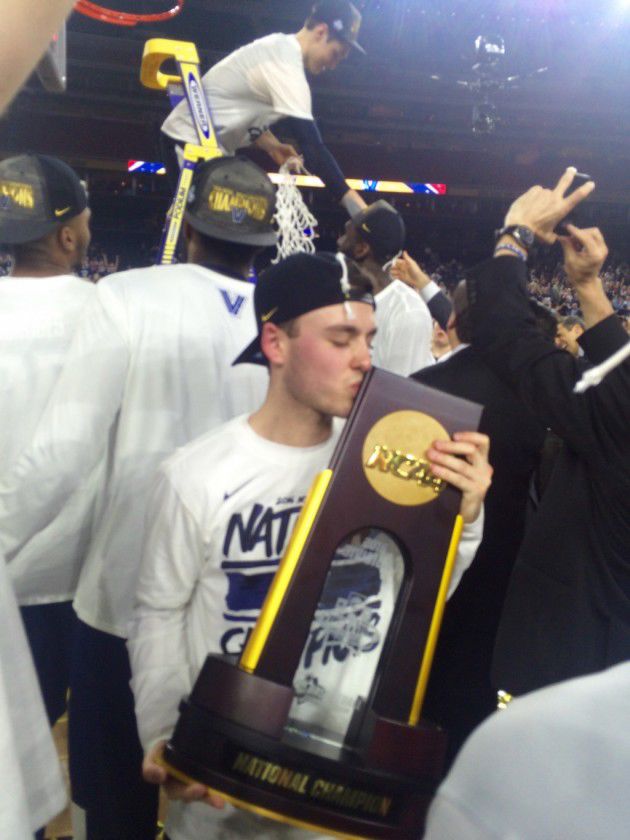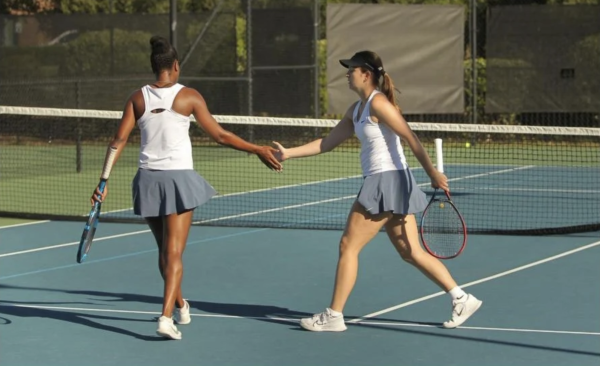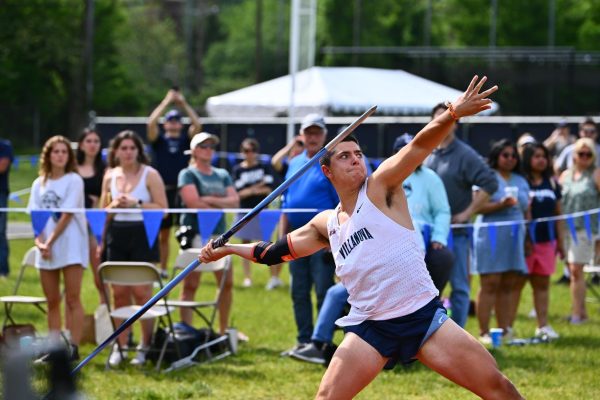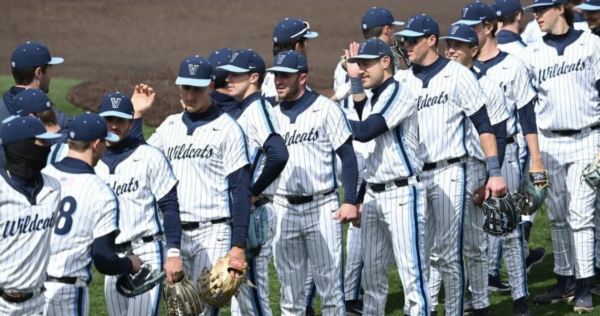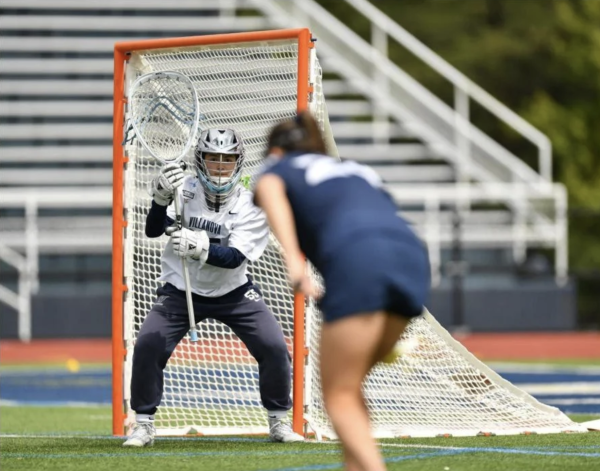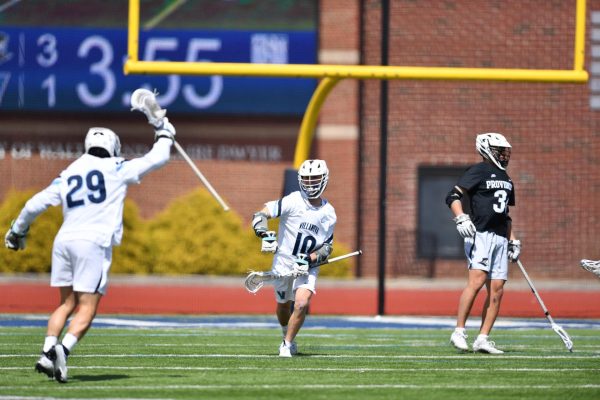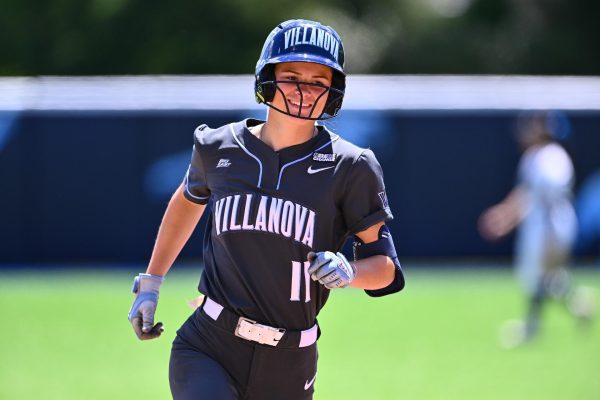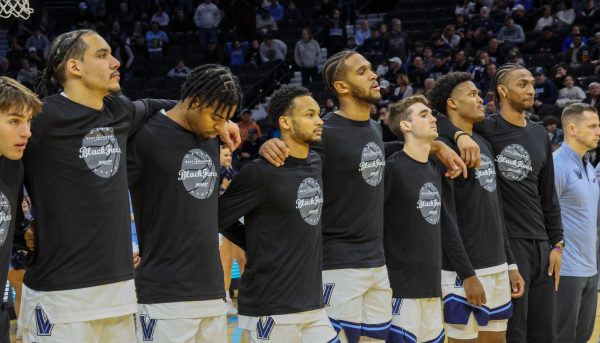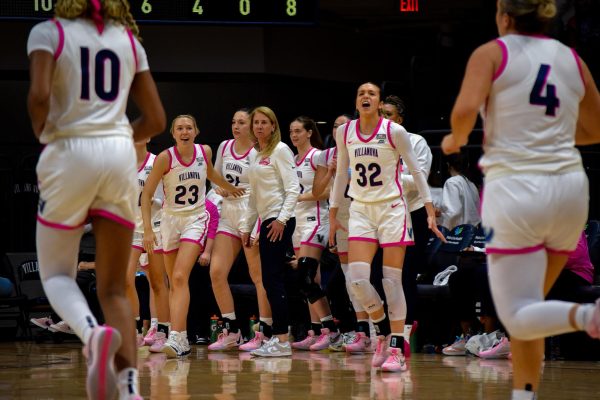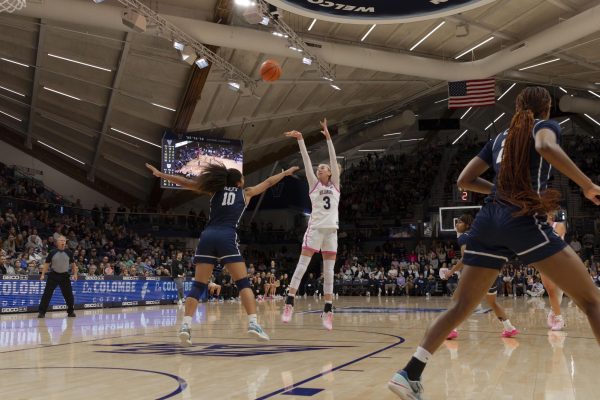Basketball manager undertakes humble role behind the scenes
December 6, 2016

Courtesy of marianapolis.org
There is a constant low rumbling in the nearly immaculate hallway. In the heart of the Davis Center, the rumbling, stemming from a thousand hidden vents, is the hum of the Villanova basketball machine. Multiple doors are spaced down the long stretch, but none of them are open, and the blinds on the windows have been pulled. Even the doors to get into this section of the Davis Center are closed, and the blinds are down. Most students are not allowed in this hallowed space, and their presence is accompanied by stern glances and the occasional “What are you doing back here?” as players and staff hustle between the mysterious rooms.
Dave Ford is not most students. He is the head of a group of students so essential to the program that he, along with another senior, are on scholarship for their work. Dave Ford is the Head Manager for men’s basketball team, and as he says, while walking back into the lobby of Davis for some fresh air, “If you don’t see us, we did our job.”
Ford is unassuming. He is soft-spoken at first, but he looks you in the eyes with quiet confidence. Dressed in a simple Villanova basketball sweatshirt, one very similar to those found in the bookstore, and khakis, Ford seems like just another student. Yet, even though you may not recognize his face from posters or his name from announcers, Ford is very much a member of the team. Not only is he present for practice, but he works behind those closed doors for hours before and after practice, and certainly for longer on game days.
When he isn’t running water out, mopping the court, checking equipment, or organizing uniforms and gear, Ford also has to find time to fulfill his degree in Psychology and a Business minor, and maybe even squeeze in a break for himself. With a shrug Ford admits, “I spend most of my day back there,” casually glancing back at the locked entrance to the basketball wing. But such dedication is not strange to Ford. In fact, it seems to run in the family.
Ford’s uncle was a manager for the team during the 1980s, when current head coach Jay Wright was just an assistant. Ford himself was inspired to pursue this demanding position because of his uncle’s legacy and his personal connection to Wright. Moreover, as another senior manager, Art Quaranta, points out, being a manager allows you to be a part of the basketball program at a school were the entire community lives and dies by the sport.
Players pass by Ford and give him a nod, “What’s up, Dave?” or text him about getting something to eat with the boys. Staff members pass him in the hallway with a smile. He is a part of this family.
“It really makes you appreciate their success,” Ford says, alluding to the demanding schedule he and the athletes share, but also to the work he sees them put into their sport, as he stands ready with a water bottle. Perhaps the player he is most proud of is last year’s center, Daniel Ochefu. “He learned to mop from me,” Ford claims, mimicking the motion Ochefu made famous during the 2016 NCAA Championship, when the center mopped up a puddle of sweat off the court right before the game-winning play. Thinking about the National Championship in Houston, Ford stares off as he remembers that from the sidelines, 4.7 seconds seemed like plenty of time for a team he had watched grow all season.
As Head Manager, Ford has an entire crew of other student-managers who help him run the show from behind the scenes, including freshmen, who, like him three years ago, are drawn to the team to fulfill their dreams and be a part of something greater than themselves. Ford is technically their boss, but he functions more as their mentor and guide, setting the standard for them to follow.
As James Wroblewski, a sophomore manager, notes, “Dave Ford is the type of person who understands the commitment that being a Villanova basketball manager requires,” and having risen through the ranks himself, Ford knows the ins and outs of the job, and has done all of the dirty work that needs to be done out of the spotlight. And according to Wroblewksi, despite the time it takes, being a manager, even the head one, “doesn’t mean we can’t have a normal college experience” and Ford, “allows us to separate the two worlds,” of Villanova basketball and Villanova University “in ways most leaders could not.”
For Dave, a third world is emerging as a quarter of his senior year has raced by—the real world. Following his graduation Ford hopes to be able to work in one of the major sports, preferably soccer, as Ford was a long time player and remains an avid fan of Chelsea. But, if employment in the MLS or another professional sports organization remains elusive, Ford plans to connect his job to sports regardless. Sports create one big family in Ford’s opinion, and following his experiences at Villanova, he will need a way to fill his craving for that familial atmosphere.
Ford describes being a manager as akin to being the “stage men in a play,” and one might never see them until they run across the stage with an essential prop or set piece. Most people won’t see the work Ford has done over the years, and perhaps the biggest exposure he has received was to be in the background of the team’s television coverage. It doesn’t matter to him. He knows what he has accomplished and what the entire experience has meant to him, and given to him.
Suddenly, Ford glances back at the foreboding doors to the basketball wing of Davis. An internal clock or alarm has informed him that something needs to be done, fixed, moved or organized. Ford politely excuses himself and crosses the lobby with an ease that suggests, rightly so, that he has made this walk a thousand times. He opens the door and walks into the hallway, the hum of the vents echoing into the lobby.
The doors close quickly behind him, and somewhere past them Ford once again works behind the scenes as he has always done, tending the machine and helping Villanova Basketball get through another day as smoothly as possible.

